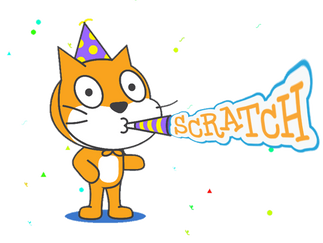Beginner Coding for Kids in Singapore: Why Scratch is the Perfect First Step
- Youyang Zhang
- Aug 13, 2025
- 3 min read
In today’s digital world, many parents in Singapore are wondering if it’s too early for their child to start coding.
The truth is, in an age where digital fluency is becoming just as important as reading or math, learning to code from a young age builds a strong foundation for the future. In Singapore, our Smart Nation vision is actively shaping a generation of digitally empowered learners. Coding is already being integrated into school curriculums, after-school programmes, and holiday camps – highlighting its growing importance in early education.
Among the various ways to introduce children to programming, block-based coding platforms like Scratch and CodeLab stands out as one of the most accessible, effective, and age-appropriate starting points. Here’s why:
—
1. Built for Young Learners, with a Strong Foundation for the Future
Scratch’s visual interface uses drag-and-drop code blocks, allowing students to create their own games, animations, and stories without the pressure of typing or memorising complex syntax. This lets them focus on the logic and structure of programming, rather than worrying about spelling errors or formatting rules.
As they explore blocks like loops, conditionals, and variables, students develop a strong conceptual understanding of how programming works. This foundational knowledge makes it far easier for them to transition to text-based languages such as Python later on, because they’ve already mastered the core thinking behind it.
At Lyza, we believe in building solid foundations before moving on to more advanced concepts. That’s why our progressive curriculum is designed to introduce students to coding in a way that’s age-appropriate, engaging, and effective. With Scratch, our students aren’t just learning to code – they’re learning how to think like coders.
2. Aligned with MOE’s Coding Curriculum
In Singapore, the Ministry of Education (MOE) has been actively weaving computational thinking into both primary and secondary school curriculum, aiming to spark early interest in STEM and digital skills, setting the stage for a tech-savvy generation.

Today, coding is a compulsory subject in primary schools, introducing students to basic programming concepts. While this is a valuable starting point, it often serves as an introduction rather than in-depth mastery. That’s why consistent practice outside of school, such as through programming classes, plays a vital role in helping students strengthen and apply what they’ve learned.
With Scratch, students go beyond the basics, they apply their skills across subjects like Math, Science, and even English, by creating educational games, simulations, and interactive stories.
3. Building Essential 21st Century Skills
Block-based coding is more than just an introduction to technology – it’s a powerful tool for developing critical thinking, problem-solving, creativity, and resilience. When children use platforms like Scratch and CodeLab to build games or animations, they’re not just playing, but they’re learning to think logically, test ideas, and troubleshoot mistakes, much like little engineers at work.
Think of it like building with LEGO: each block represents a coding concept, and how they fit together determines how the final creation behaves. If something doesn’t work, kids take it apart, try a different approach, and learn from the process. That’s real-world problem-solving in action.
More importantly, these are life skills. Coding nurtures problem-solving, logical thinking and creative exploration – skills students can carry into any subject, project, or future career path.
—
In Singapore’s fast-paced and academically rigorous environment, it is important to create a space for children to build these skills outside of traditional subjects that supports their holistic development – nurturing independent thinking, creativity, and confidence in a hands-on, meaningful way.
As we move toward an increasingly digital-first society, coding is no longer optional, it’s becoming a core literacy. Platforms such as Scratch and other block-based tools offer the perfect starting point for young learners, making coding accessible, engaging and empowering.

📌 Start Your Coding Journey Now!
At Lyza Education, your child will gain essential skills in a fun, supportive, and future-ready environment.

















Comments